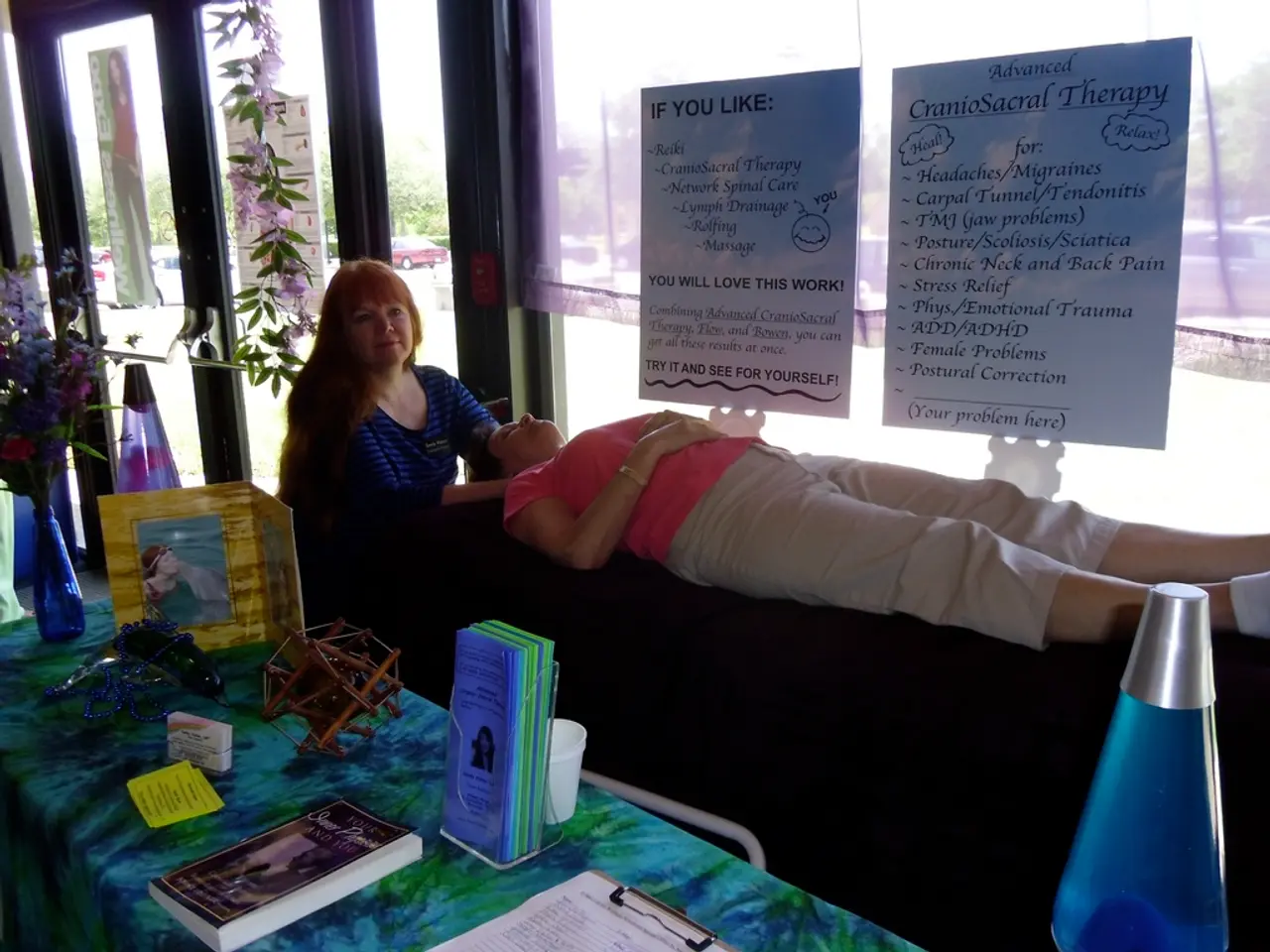Modern Self-Care's Untold Worry: The Unspoken Anxiety of Wellness Pursuits
The world of self-care is undergoing a significant transformation, with Generation Z (Gen Z) at the forefront of this change. This generation, born between the mid-1990s and early 2010s, is grappling with unprecedented levels of anxiety and mental health struggles, largely due to a combination of external pressures and internalized expectations surrounding self-care.
According to recent reports, 63% of Gen Z individuals have reported their mental health as 'less than good' in the past month. This alarming statistic is a reflection of the challenges faced by this generation, which includes financial stress, social pressures, and systemic issues like racism and cultural barriers, particularly among youth of colour.
The Pressure to 'Do Self-Care Right'
The pressure to maintain ideal self-care routines has turned simple activities into overwhelming obligations for Gen Z. This pressure is further exacerbated by social media and influencers promoting wellness trends, which can create unrealistic expectations and add to the anxiety and stress experienced by this generation.
Seeking Professional Help
Despite the openness to mental health discussions and the willingness to seek therapy, access to mental health care remains a challenge for Gen Z. Cost, waitlists, and a lack of culturally competent providers are some of the barriers that hinder this generation from receiving the necessary support.
Reshaping the Wellness Industry
In response to Gen Z's unique needs, the wellness industry is evolving. There is an increasing demand for accessible, culturally sensitive, evidence-based mental health services and products. The focus is shifting from individual self-care practices to inclusive, holistic approaches that emphasize connection and community.
Practical Strategies for Gen Z
- Practicing self-compassion over self-criticism can help alleviate the stress and guilt associated with self-care.
- Setting boundaries around wellness obligations can help prevent self-care from becoming another source of anxiety.
- Letting go of perfectionism around wellness is another practical strategy for maintaining mental well-being.
- Reframing self-care as essential, not indulgent, can help combat feelings of guilt and shame.
- Focusing on meaning, not metrics or trends, can help create a more sustainable approach to self-care.
The Role of Evidence-Based Therapies
Evidence-based therapies like Cognitive Behavioral Therapy (CBT), Dialectical Behavior Therapy (DBT), and Acceptance and Commitment Therapy (ACT) are proving effective in addressing wellness-related anxiety, guilt, and shame.
Seeking Professional Support
If self-care becomes overwhelming, seeking professional support is a practical strategy. Dr Konstantin Lukin, a Licensed Clinical Psychologist and the Founder of the Lukin Center for Psychotherapy, specializes in treating anxiety, depression, relational issues, and emotional dysregulation.
Raul Haro, a Nursing Supervisor at Pathways Recovery Center in Azusa, California, with expertise in drug and alcohol counselling and trauma-focused therapies like CBT and EMDR, is another professional who can provide valuable support.
Kosta Condous, a licensed marriage, family therapist and co-founder of Higher Purpose Recovery, offers extensive clinical leadership experience in various treatment environments.
In conclusion, the increasing pressure on self-care practices is significantly impacting the mental health of Generation Z, necessitating a shift in the wellness industry towards more accessible, culturally sensitive, and holistic approaches. It is crucial for this generation to prioritize their mental health and seek professional help when needed.
Digital wellness practices are evolving to meet the unique needs of Generation Z, with a growing emphasis on accessible, culturally sensitive, and evidence-based mental health services and products. The pressure to maintain ideal self-care routines can turn simple activities into overwhelming obligations, exacerbated by social media and influencers promoting wellness trends. However, professional help such as therapy, psychological services, and evidence-based therapies like CBT, DBT, and ACT can provide effective solutions for addressing wellness-related anxiety, guilt, and shame. Practical strategies include self-compassion, setting boundaries, letting go of perfectionism, and reframing self-care as essential, not indulgent. Seeking help from professionals like Dr Konstantin Lukin, Raul Haro, and Kosta Condous can be beneficial when self-care becomes overwhelming. The wellness industry is reshaping, focusing on connection and community, to address the challenges faced by Gen Z in maintaining their mental health.




